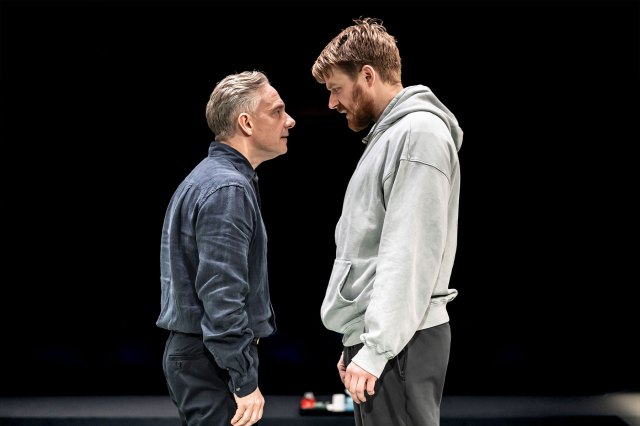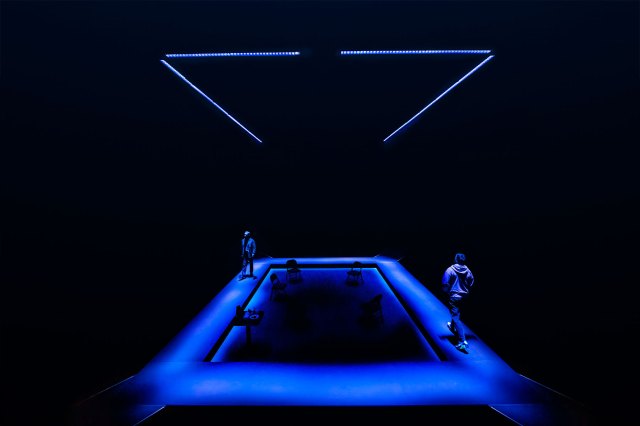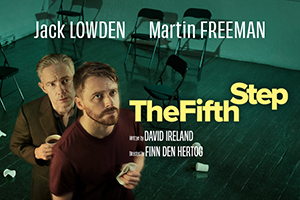The Fifth Step with Martin Freeman and Jack Lowden in the West End – review
The transfer of David Ireland’s new play runs at @sohoplace until 26 July

A lot has changed since David Ireland’s The Fifth Step had its premiere at the Edinburgh International Festival last August. It’s still a play that teeters between comedy and dark horror, as it examines the relationship between Luka, a young man struggling to conquer his addiction, and James, the older man who becomes his mentor when he joins Alcoholics Anonymous.
But it has been substantially rewritten and also recast. Jack Lowden still plays Luka, turning him into a compelling mix of jittery unhappiness and wounded righteousness as he goes on a journey that takes him from despair – “I think I might be an incel” – through dubious revelation, to the knowledge that he isn’t the only one in this relationship with problems.
As James, however, the excellent Sean Gilder has been replaced by the equally excellent but entirely different Martin Freeman, who brings both supreme comic timing – the amount of weight he gets out of a single “Blimey” when Luka confesses he is masturbating ten times a day is a wonder – and a terrifying burden of suppressed anger to the role. The play is tighter and tauter as a result of the changes; it reaches a tidier conclusion, though is no less full of questions and doubt.
Milla Clarke’s set, quite elaborate when the National Theatre of Scotland production opened, has evolved too; in-the-round at @sohoplace, it pitches the two men like boxers in a lowered oblong where simple props are pulled out and folded away under a shelf. The sensation of a boxing ring is entirely in keeping with a play which features a quote from Martin Scorsese’s Raging Bull in an early scene – in which Lowden offers a terrific De Niro impersonation – and a later, more threatening repeat from Freeman towards the close.

By that point the relationship between the two men has deteriorated to the point where Luka feels he cannot take the fifth step in the AA programme – the one where you share a moral inventory of everything bad you’ve done in your life with someone you trust. But who can Luka trust? Can he trust his own belief in a divine revelation when the actor Willem Dafoe appeared to him like Jesus on a gym treadmill? Or James who says he might as well worship a paper cup as God and who seems to have his own unresolved secrets? Or the higher power that AA asks him to hold to?
This examination of belief is one of the play’s themes. The other is the nature of masculinity itself, a theme that has only got more topical in the months since its unveiling. Luka fears he might be an incel because he can’t talk to a woman without being drunk; even when he is sober, his attitude to women is transactional. He ends up having sex in a car after bible studies. “The church has changed since my day,” says James, snidely.
But James is profoundly flawed too, far from the positive masculine role model he aspires to be. Under challenge, he becomes aggressive and defensive. Freeman narrows his eyes and makes a little grimace as he attempts to take control. His final plea to Luka is a chilling, distressed whimper. At the same point Luka, confusion spreading across his face when confronted with the fallibility of a man he has admired, has to make a choice.
Freeman and Lowden spar like champions. The Fifth Step, carefully directed by Finn den Hertog, spins through many moods and multiple questions but it never loses its grip. It is a fascinating study of men with lives out of control, and the danger of the ways they seek to exert their power over others and themselves.


















